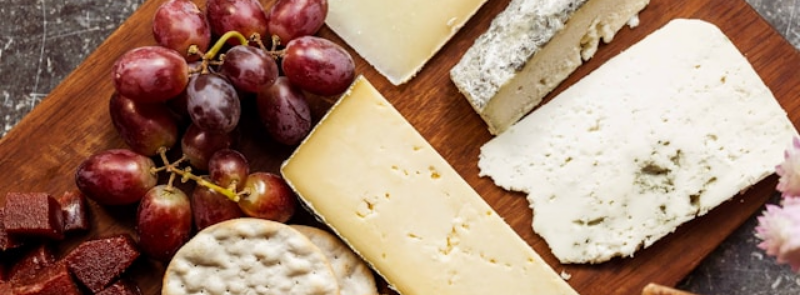
When It Occurs
Annually Third Saturday of October
Timeline
Days to Come (3)
# Hashtags
#InternationalRawMilkCheeseAppreciationDay #RawMilkCheese
Celebrate International Raw Milk Cheese Appreciation Day every third Saturday of October by savoring the exquisite flavors and textures of raw-milk cheese. What sets raw-milk cheese apart? Unlike its counterparts, it's crafted from natural, unprocessed milk, in contrast to the pasteurized milk typically used in commercial cheese production, often laden with additives.
Raw Milk Cheese
- Definition: Raw milk cheese is made from milk that has not been pasteurized, meaning it hasn’t been heated to the high temperatures that kill off most bacteria.
- Flavors and Textures: These cheeses are known for their complex flavors and textures, which can vary widely depending on factors such as the type of milk used, the region of production, and the specific cheesemaking techniques.
History and Significance
- Cultural Heritage: Raw milk cheeses are part of ancient culinary traditions in many cultures. They reflect the biodiversity of the regions where they are produced and the skills of local cheesemakers.
- Artisanal Craftsmanship: Making raw milk cheese is often a hands-on, artisanal process. Cheesemakers utilize traditional methods and local ingredients to produce cheeses with unique characteristics.
Health and Safety
- Nutritional Benefits: Raw milk cheeses retain more natural enzymes, beneficial bacteria, and nutrients compared to pasteurized cheeses.
- Safety Regulations: While raw milk cheeses offer unique flavors, they can also pose health risks if not produced under stringent conditions. Many countries have regulations in place to ensure the safety of raw milk cheese, including aging requirements and strict hygiene standards.
Activities and Celebrations
- Cheese Tastings: Cheese shops, markets, and restaurants often host tastings to introduce people to a variety of raw milk cheeses.
- Educational Events: Workshops, seminars, and lectures on cheesemaking, the benefits of raw milk, and the history of raw milk cheeses are commonly held.
- Farm Visits: Some celebrations include visits to dairy farms where raw milk cheeses are produced, offering an insight into the cheesemaking process.
- Social Media Campaigns: Enthusiasts share their experiences and favorite raw milk cheeses on social media using hashtags like #RawMilkCheese and #CheeseAppreciationDay.
Benefits of Raw Milk Cheese
- Flavor Diversity: Raw milk cheeses are prized for their depth of flavor and unique taste profiles, which are influenced by the milk’s origin and the cheesemaking process.
- Cultural Significance: They play an important role in the culinary traditions of many regions, contributing to local food heritage.
- Support for Artisans: Celebrating raw milk cheese supports small-scale dairy farmers and cheesemakers who maintain traditional practices.
Challenges and Controversies
- Health Risks: The main concern with raw milk cheese is the potential for harmful bacteria such as E. coli, Listeria, and Salmonella. Proper regulation and adherence to safety standards are crucial.
- Regulatory Differences: There are varying regulations around the world regarding the production and sale of raw milk cheeses. In some countries, they are banned or subject to strict aging requirements.
How to Participate
- Try New Cheeses: Visit local cheese shops or markets to purchase and taste different types of raw milk cheese.
- Learn and Share: Educate yourself about the history and production of raw milk cheeses and share this knowledge with others.
- Support Local Producers: Buy from local dairy farmers and artisanal cheesemakers who produce raw milk cheese.
- Attend Events: Participate in events such as cheese tastings, farm tours, and workshops to celebrate and learn more about raw milk cheese.
International Raw Milk Cheese Appreciation Day is a celebration of the rich heritage and diversity of raw milk cheeses. It promotes understanding and appreciation of these artisanal products, supporting the cheesemakers and traditions that bring these unique cheeses to our tables.


